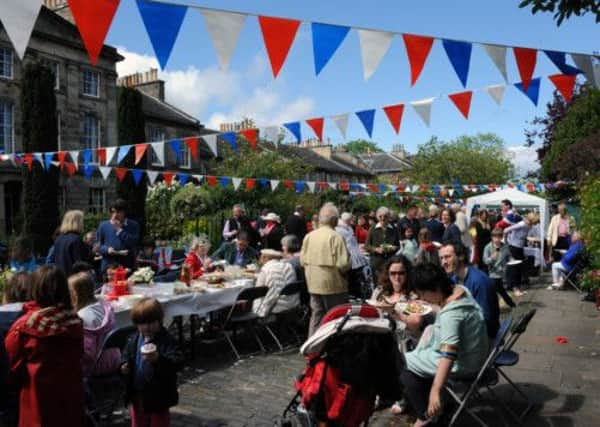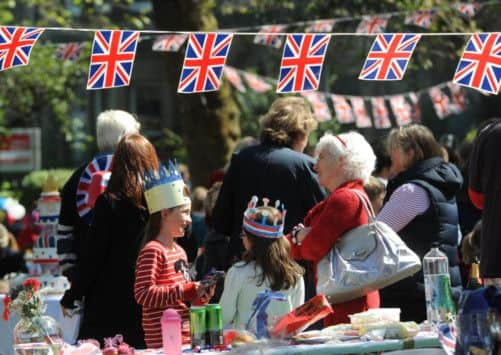Bill Jamieson: Happiness is just a flag wave away


Happiness: “a state of well-being characterised by emotions ranging from contentment to intense joy”. We know the dictionary definition. But do we know happiness when we have it?
It will have come as a surprise to many that according to the Office for National Statistics (ONS), our happiness rose appreciably last year. Its measure may not quite be the thermometer of unbridled ecstasy – “the proportion of people rating their life satisfaction as seven or more out of 10” – but it has sufficed to show a rise from 75.9 per cent to 77 per cent. Who would guess that “intense joy” could come with such fine gradation?
Advertisement
Hide AdAdvertisement
Hide AdYou don’t have to be one of nature’s curmudgeons to enter a note of caution here. This is the same ONS that brings us those GDP statistics, barely released before the revisions set in; the same ONS that can make recessions appear and disappear as if at statistical will; that has consistently underestimated the depth and severity of the last recession (we had, on its latest calibrations, a longer and deeper recession than previously thought, rather than one interrupted by brief wellbeing).


The ONS tentatively ascribes this uptick in happiness to the Olympics and the Diamond Jubilee. It certainly could not have been the 2012 weather (the wettest for 100 years) or the economy (barely a pulse) or business confidence (down) or real household incomes (down) or house prices (flat) or public spending, or government popularity. Indeed, on all the measures by which governments habitually measure our state of wellbeing, 2012 was just another dreary dismal year. Can it really be true we are at heart a happy nation of javelin-hurling monarchists?
The survey tells us little we did not already know or suspect: that married people are happier than singles, singles happier than those divorced, and that the old are happier than the young. But arguably the most troubling line in the ONS release is the one that read, “The survey is carried out to help the government develop policies to improve people’s wellbeing.” Few could read that without the sense of a deep shadow falling upon them.
Undeterred by the prospect of this reaction, the survey compared its data from 2007-2011 with European Union figures for this period to find that the British were happier than the French, Germans and Italians. The UK ranked 10th for life satisfaction out of 27 EU countries. Contrary to any impression we may have gained that the banking crisis, rising unemployment, government austerity, falling house prices and plunging stock markets depressed us, this rating did not change between 2007 and 2011, allowing the ONS to describe this as a “picture of stability” in contrast to a decline in happiness in many EU countries. It also showed a small reduction in anxiety levels. The reaction of many on reading this may well be a conviction that the ONS is on hallucinogenic drugs.
What this survey has done has been to highlight yet again the gulf between objective and subjective definitions of happiness. The attempt to introduce feelings to the national accounts, to stretch objective measures of performance to include non-monetary items is fraught with hazard. Without objective measurement, it risks being too woolly, but with such measures it risks being prescriptive and too contentious. Indeed, its only virtue may be to remind us of what we really most care about.
Ask a random sample of people how they would define happiness, and few would begin with a calculus based on GDP as a comparator, or inflation-adjusted earnings, or modulations in the household savings ratio. Rather, they would be more likely to speak of health and contentment; family life; being at peace with the world; good food; love of a job well done. Indeed, the happiness that means most to us is very seldom correlated with incomes or wealth or prestigious possessions.
Two television programmes in the past few days brought vivid confirmation of this from sharply different perspectives. The first was the BBC 4 series Britain On Film which focused on “Brits at Play”: how we relaxed and enjoyed ourselves in the late 1950s and early 1960s.
Holiday camps, crowded beaches, hill walking, keep-fit clubs, coach tours, camping and caravanning: in an age when we were materially poorer, before mass airline travel and the new worlds opened up by the internet, we lacked for nothing in our ability to enjoy ourselves. These were scenes from this country within the lifetimes of many. Yet it seems a totally different – and happier – world. Today we have all manner of electronic gadgetry and a far higher level of discretionary income to travel where we please. But commensurately happier? Many would doubt it.
Advertisement
Hide AdAdvertisement
Hide AdThe second programme was Channel 4’s Fill Your House for Free, hosted by Kirstie Allsopp. This is a woman whose relentless breezy cheerfulness and obsession with all things property would have a large proportion of viewers wishing their remote was an AK-47.
But if your TV screen survived the onslaught of bullets, the delightful charm of this programme is the way in which, with creative imagination and a modicum of DIY, it transformed before our jaundiced eyes rubbish from a skip or builder’s scrapyard into stunning pieces of furniture. An abandoned bathtub or shopping trolley is sawn in half and turned into stylish chairs; old beds are refashioned into must-have sofas, the end result bringing greater pleasure to the owners than anything bought at stupendous prices from interior design outlets.
However, even if Kirstie Allsopp’s breathless cheer sends you into catatonic depression, there is little doubt that a combination of sunny weather, unexpected sporting success – or perhaps just the absence, however briefly, of the relentless economic miserabalism of the nightly news – can boost our sense of wellbeing.
Latest survey evidence points to a sharp upturn in UK consumer confidence in July. Along with higher employment, the marked rise in consumer confidence boosts hopes that consumers will spend more and help the economy build on its better second quarter performance. According to the European Commission, UK consumer confidence strengthened sharply in July to the highest level since April 2010 and well above the 2012 average. There’s little doubt that increased optimism about the economic outlook and a less pessimistic view of the economy’s recent performance has been driving up consumer confidence.
So perhaps it was not the Olympic Games as such, than the temporary demotion of bad news and that deathly duo of TV economics, Robert Peston and Paul Mason, that made us feel instantly better. And on that basis, if 2012 brought an improving score on the ONS barometer, the summer of 2013 should be off the scale.